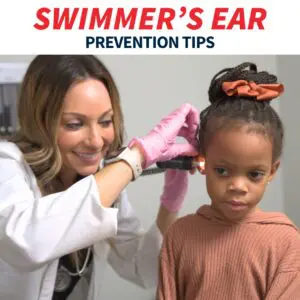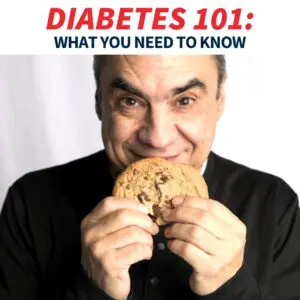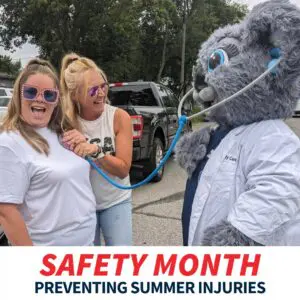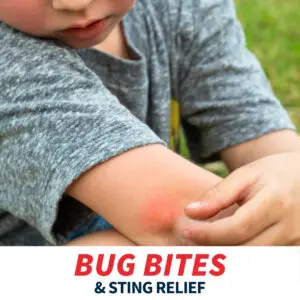Walk it off or trip to the doctor? Warning Signs of a Concussion in Young Athletes
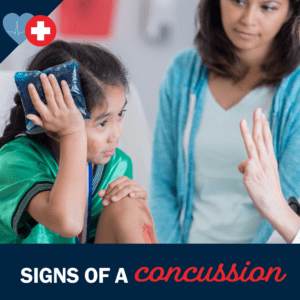 Spring is an exciting time for young athletes, with several sports seasons beginning. Participating in team sports has many benefits for kids and teens, such as increasing physical activity, teaching important social skills and building self-confidence.
Spring is an exciting time for young athletes, with several sports seasons beginning. Participating in team sports has many benefits for kids and teens, such as increasing physical activity, teaching important social skills and building self-confidence.
However, parents, coaches and athletes themselves need to be aware of the risk of injuries, particularly concussions. A recent study published in the Journal of the American Medical Association found that about 1 in 4 U.S. teens reported experiencing at least one concussion. Here we discuss important information about concussions to help in the prevention and treatment of this serious injury.
What is a concussion?
Caused by a bump, blow or jolt to the head or hit to the body, a concussion occurs when the head and brain move rapidly back and forth. This movement can cause chemical changes in the brain and damage to brain cells because of the way the brain bounces or twists in the skull.
Signs and symptoms
Generally, signs of a concussion are apparent immediately or soon after the impact that caused the injury. Symptoms may not be severe at first, and in some cases can take hours or days to show up, so it’s important to continually monitor the injured person.
Observations that indicate a concussion:
- Loss of consciousness, which may occur briefly
- Appearing stunned or dazed
- Movements are clumsy
- Responds to questions slowly
- Unable to remember what happened before or after the impact
- Drastic changes in mood, behavior or personality
Symptoms a person with a concussion may experience:
- Overall feeling of being off or not right
- Severe headache or pressure in the head
- Confusion or trouble concentrating, remembering or learning new information
- Dizziness, blurred vision or difficulty standing or walking
- Feeling drowsy, sluggish or groggy
- Sensitive to light or noise
- Nausea or vomiting
Medical care should be sought if any of these signs or symptoms occur after a bump, blow or jolt to the head or body. It is a medical emergency and immediate care is vital if any of the following danger signs and symptoms happen:
- Convulsions or seizures
- Repeated vomiting
- One pupil larger than the other
- Inability to wake up
- Slurred speech, weakness or numbness
- An increasingly worse headache that does not subside
- Unusual behavior, increasing confusion, restlessness or agitation
How to respond to a concussion
Whether the person observing the signs of a concussion is a parent, a coach, the athlete themselves or a teammate, it is crucial for that person to speak up and have the person sit down. Continuing to participate in an activity or sport can cause further damage to the brain, which can have permanent effects. The young athlete should not return to play until a medical professional, trained in evaluating concussions, gives the go-ahead.
How to prevent concussions
The best way to prevent concussions is to promote a safe sports culture. Parents and coaches should enforce rules for fair play, safety and sportsmanship to ensure athletes avoid unsafe actions. Openly discussing concussions and the importance of reporting them will cultivate a culture of understanding and prevent athletes from hiding symptoms if a concussion occurs.
If you think your young athlete has experienced a mild concussion, Midwest Express Clinics are here to guide you through diagnosis and treatment. Check in online or walk in to one of our convenient Northwest Indiana and Chicagoland area locations.

